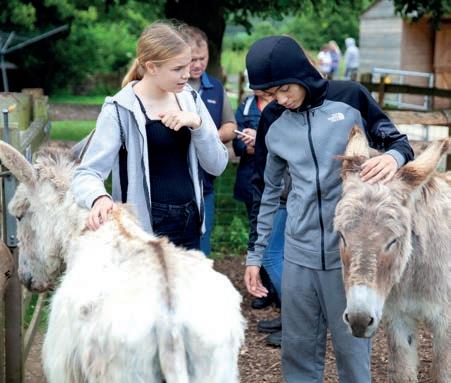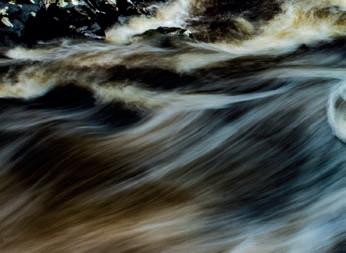
2 minute read
Combatting crime
The CLA’s rural crime team has achieved some notable wins in its work concerning hare coursing and poaching in 2021, and will build on this in 2022
embers in England and
MWales tell us that rural crime is a growing concern, with many increasingly disheartened by the law enforcement process. During 2021, the CLA continued to lobby at all levels – with some notable successes – to move rural crime up the agenda of politicians, the police and to engage with the Sentencing Council.
Rural areas can provide rich and easy pickings, and criminals are willing to exploit this. Police are often inadequately resourced, and many are inexperienced in the issues peculiar to rural crime. To this end, the CLA is calling for specifi c rural crime training for new police recruits and call handlers.
Together with a wide range of other organisations, including the National
Farmers’ Union, the Game and Wildlife
Conservation Trust, the British Association for Shooting and Conservation, the
Countryside Alliance, the RSPCA and the Kennel Club, we have created the
Hare Coursing Coalition. Agile and determined, this is a formidable alliance that is challenging government at every opportunity to bring forward new laws to protect landowners and the hare population from violent and well-organised individuals.
We worked with Robert Goodwill MP to submit amendments to the Police, Crime, Sentencing and Courts Bill. The CLA president also had a meeting with Lord Zac Goldsmith, which led to the inclusion of hare coursing in the UK government’s Plan for Animal Welfare, published in May 2021. Shortly afterwards, Defra told us it was planning to take our changes forward.
We pressed Environment Secretary George Eustice for a timely response to Defra’s consultation on plans that would involve three legislative changes: increasing fi nes under the Game Act 1831; enabling police forces to reclaim the cost of kennelling dogs between arrest and prosecution; and introducing a clause of ‘going equipped’, which would mean police could intercept individuals if they look like they are going to commit the crime – for example, if they have certain equipment with them. We have since suggested a further amendment that would ban those convicted of hare coursing from owning animals in the future.
We asked politicians to enter the ballot for a Private Members’ Bill on hare coursing. Richard Fuller MP made it through and submitted a Hare Coursing Bill to Parliament. There is a risk the bill will not be heard, so we will apply pressure. We contacted the minister to suggest taking the government’s Hare Protection Bill forward via amendments to Fuller’s Bill. We are also working on poaching. While the policing and sentencing improvements we have asked for will act as a deterrent, we are working with the Cybercrime Delivery Group to target blatant social media posting linked to poaching, badger baiting and other wildlife crime. We have also been involved in the Crimestoppers campaign ‘Speak up to stop rural crime’ with some hard-hitting CLA guest blogs and social media promotion.
Despite our successes, our work is far from over and continues to be a focus in 2022.
THE CLA’S RURAL CRIME ADVISERS
Libby Bateman Claire Wright Tom Mason Alison Provis
Visit cla.org.uk/










